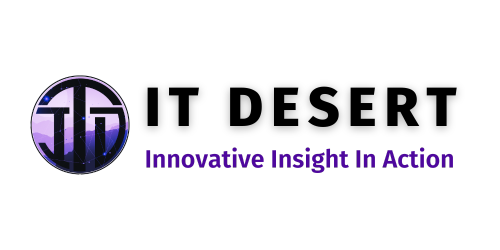How to Do SEO for Beginners
Introduction
Search Engine Optimization, or SEO, might sound like a fancy term, but it’s simply a way to help your website rank higher on search engines like Google. For beginners, SEO can seem overwhelming, but starting with the basics will set you on the right path. Let’s dive into how you can master SEO one step at a time.
Understanding Search Engines
How Search Engines Work
Search engines like Google and Bing crawl the internet, indexing content to serve users the most relevant results. Think of it as a digital librarian organizing books for easy access.
What is an Algorithm?
Algorithms are the set of rules search engines use to decide which pages to show for a given search query. Understanding this helps you align your content with what search engines value.

Key Elements of SEO
On-Page SEO
This involves optimizing elements on your website, such as content and HTML source code, to improve rankings.
Off-Page SEO
This focuses on actions taken outside your website, like building backlinks, to boost authority.
Technical SEO
This includes improving website structure, speed, and mobile-friendliness to enhance user experience.
Keyword Research Basics
What Are Keywords?
Keywords are phrases people type into search engines. Choosing the right ones ensures your content matches what people are looking for.
Free Tools for Keyword Research
Tools like Google Keyword Planner, Uber suggest, and Answer The Public are great for beginners to find relevant keywords.
How to Choose the Right Keywords
Aim for a mix of high-traffic and low-competition keywords that align with your content.
On-Page SEO Tips
Optimizing Title Tags and Meta Descriptions
These are the first things users see on search results. Keep them compelling and include keywords.
Structuring Content with Headings (H1, H2, H3)
Organized content is easier for both users and search engines to read.

Importance of Internal Linking
Linking to other pages on your site helps users and boosts your SEO.
Content Optimization
Writing Engaging and Unique Content
High-quality, original content keeps visitors engaged and encourages sharing.
Keyword Density and Placement
Naturally incorporate keywords into your content without overstuffing.
The Role of Multimedia
Add images, videos, and infographics to make your content more engaging.
Mobile-Friendly SEO
Why Mobile Optimization Matters
With most searches happening on mobile devices, Google prioritizes mobile-friendly websites.
Tools to Check Mobile Compatibility
Use Google’s Mobile-Friendly Test to see how your site performs.
Page Speed Optimization
How Page Speed Affects Rankings
Slow-loading sites frustrate users and rank lower.
Tips to Improve Website Loading Speed
Compress images, enable caching, and use a Content Delivery Network (CDN).
Building Quality Backlinks
What Are Backlinks?
Backlinks are links from other websites to yours. They act as votes of confidence.
How to Earn Backlinks Organically
Create shareable content, guest post, and engage with your industry peers.
Local SEO Essentials
Optimizing Google My Business Profile
Ensure your business details are complete and accurate.
The Importance of NAP Consistency
Your Name, Address, and Phone Number should be consistent across all platforms.
Using Analytics and Tools
Introduction to Google Analytics
This tool helps you track website traffic and user behavior.
How to Track SEO Progress
Monitor metrics like organic traffic, bounce rate, and keyword rankings.
Common SEO Mistakes to Avoid
Over-Optimization
Stuffing keywords or overdoing it with backlinks can hurt your rankings.
Ignoring User Intent
Understand what your audience is looking for and create content accordingly.

The Role of Social Media in SEO
How Social Signals Impact Rankings
Likes, shares, and comments can indirectly boost your SEO by driving traffic.
Sharing Content Effectively
Promote your articles on platforms where your audience is active.
The Future of SEO
Voice Search Optimization
As voice search grows, optimize for conversational keywords.
The Impact of AI on SEO
AI tools can help create smarter, more targeted SEO strategies.
Conclusion
SEO is a marathon, not a sprint. By mastering the basics and staying consistent, you’ll see results over time. Keep learning and adapting as search engine trends evolve.
FAQs
- How long does it take to see SEO results?
It usually takes 3-6 months to see noticeable improvements. - Do I need a paid tool to do SEO?
No, free tools like Google Analytics and Ubersuggest can get you started. - What’s the best way to learn SEO?
Practice, read guides like this one, and experiment with your website. - Can I do SEO without coding knowledge?
Yes, many SEO strategies don’t require coding. - What’s the difference between SEO and PPC?
SEO is organic, while PPC involves paid advertising.

